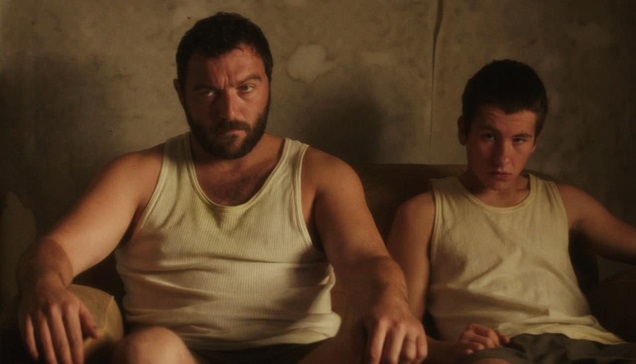Thought-provoking filmmaker Martin Radich is no stranger to film festivals, having spent the past fifteen years premiering his shorts up and down the country, as well as across the pond. His latest: the at times unsettling, and always unusual Norfolk, is no exception, although whether or not it’ll find an audience outside of the festival circuit remains to be seen.
Radich’s highly-meditative countryside-set drama, finds a former mercenary (Inglourious Basterds’s dairy farmer Denis Ménochet) hiding out in the great British wilderness with his socially-awkward son (Barry Keoghan), adapting to a relatively simple new life among the grassy hills of one of England’s greenest counties. As you can probably guess though, said quaintness doesn’t last particularly long, and soon enough the pair find themselves thrust into danger once more, after a mysterious old couple begins stalking them.
As straight-forward as this might sound, Radich’s film is really anything but, drawing on the director’s own misanthropic nature in its quest to seem about as joyous as being punched repeatedly in the face and spat on. Plot points are tied together with hazy transitions, making for some seriously muddled editing; characters seem to prefer interpretive dance and mumbled demands over genuine development, and the majority of the actual defining action takes place mostly off screen.
It goes without saying, Norfolk is anything but an easy watch. Although often billed (quite wrongly) as a thriller, there’s little in here to truly excite or amaze beyond a few admittedly stunning shots of the British countryside. Between its unruly and painfully dreary plotting, and the visual smorgasbord of filters applied in editing, it’s very much a film that is to be technically admired in some circles, rather than really enjoyed.
Most of the underlying pieces are very much in place: Radich certainly knows his way around a camera and Ménochet in particular is a fantastic addition as a troubled veteran. As is a great deal of the cast in fact, it’s simply just a matter of the foundational material not quite adding up. Ménochet gives it his all as a man driven to the edge by a painful bout of PTSD, but this is showcased in such an obvious and ham-fisted way that it loses all real sense of power and purpose.
There’s plenty of gorgeous photography to be admired, and a slight romance to Keoghan’s naivety that’s easy to cherish at times, but on the whole Radich’s latest feature is a little too muddled and downtrodden in its sensibilities to ever really be enjoyable or affecting. It will leave you praying to see more of Ménochet’s dark side though, that’s for sure.








